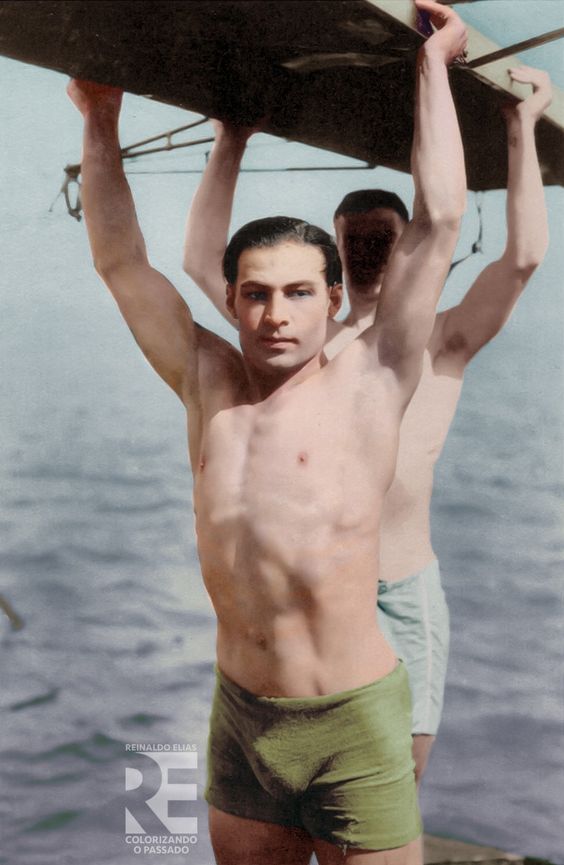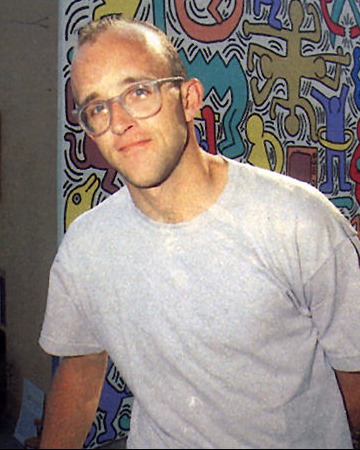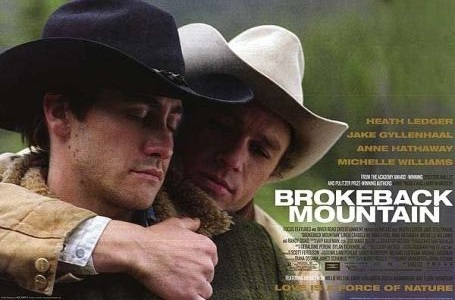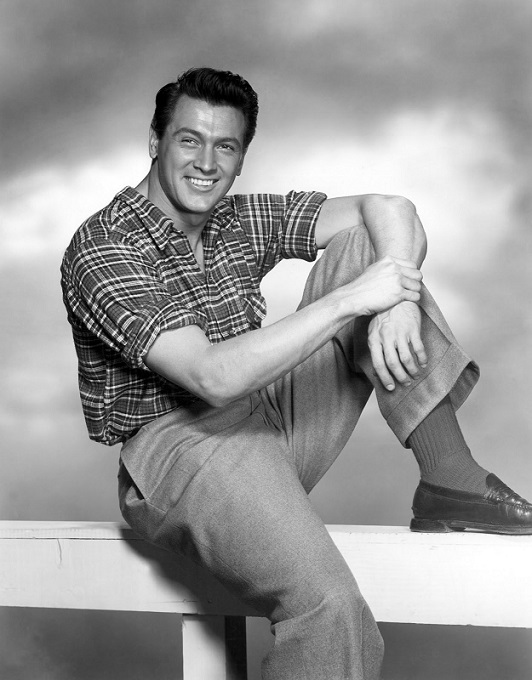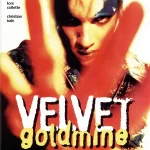Staircase – 1969 (also known as L’Escalier) is a 1969 British comedy-drama film directed by Stanley Donen and starring Richard Burton and Rex Harrison.[4] The screenplay was by Charles Dyer, adapted from his 1966 play of the same name.
The film concerns an ageing gay couple who own a barber shop in the East End of London. They discuss their loving but often volatile past together and ponder their possible future without each other, as Charles is about to go on trial for dressing as a woman in public.
The two main characters are named Charles Dyer (the name of the playwright/screenwriter) and Harry C. Leeds, which is an anagram of his name.[5]

Plot
Harry (Richard Burton) and Charlie (Sir Rex Harrison) have been together as a couple for twenty years. Despite the fact that they love each other, their relationship is characterized by each hurling verbal barbs at the other, often as an attempt to hurt the other in each needing more and continual emotional support from their partner. They live above Chez Harry, Harry’s barber shop that they co-manage in London’s East End, with Harry’s aged bedridden invalid mother (Cathleen Nesbitt), who is prone to hysterics. Ironic as to his occupation, Harry suffers from alopecia, and rather than wear a toupée that he does own but has never worn, he prefers to wrap his head in a bandage in an effort to ignore his medical situation in his embarrassment. Charlie is an actor, “former” an adjective which may largely apply, he living off the legacy of a single television commercial, his most famous acting job, which still does air. He also once performed drag. Being a performer, Charlie has an ego typical of the profession. Conversely, Charlie accuses Harry of wanting to see him fail so that Charlie will be more dependent on him. Their already fractious relationship will be placed to even more of a test with two imminent events: the visit by Cassie, Charlie’s biological daughter, who he has not seen since she was born twenty years ago and who he does not know if she knows about his sexual orientation; and Charlie being called to court on a charge of lewd public behavior.
Clip
Cast
Richard Burton as Harry C. Leeds
Rex Harrison as Charles Dyer
Cathleen Nesbitt as Harry’s mother
Beatrix Lehmann as Charles’ mother
Avril Angers as Miss Ricard
Pat Heywood as Nurse
Stephen Lewis as Jack
Gwen Nelson as Matron
Neil Wilson as Policeman
Shelagh Fraser as Cub mistress
Dermot Kelly as Gravedigger
Jake Kavanagh as Choirboy
Gordon Heath as Postman
Michael Rogers as drag singer during opening song
Royston Starr as drag singer during opening song
Production
Dyer “opened up” the script to show the couple’s neighbourhood, expanded the action to cover a period of ten days, and added characters. Rex Harrison and Richard Burton portrayed the couple and Cathleen Nesbitt and Beatrix Lehmann were featured as their mothers.
The film was produced by 20th Century Fox.
Because of Great Britain’s tax laws, the stars insisted that the film be shot in Paris, which added to the film’s budget, already inflated by their salaries ($1 million for Harrison, $1.25 million for Burton). Reportedly Elizabeth Taylor was shooting The Only Game in Town (1970) at the same time as this film was in production. While that film is set in Las Vegas, Taylor demanded that director George Stevens shoot in France so she could be close to her husband. This caused the budget of The Only Game in Town to grow higher than most large-scale, high-profile films that Fox was producing at the time.
The film’s score was composed by Dudley Moore.
Reception
Box office
According to Fox records, the film required $10,675,000 in rentals to break even, and by 11 December 1970, had made $2,125,000.[6] In September 1970, the studio reported a loss of $5,201,000 on the film.[7]
Critical
Vincent Canby of The New York Times wrote “Although Burton and Harrison are interesting actors whose styles command attention even when the material does not, ‘Staircase’ is essentially a stunt movie … Unlike Harry and Charlie, who eventually come to edgy terms with the emptiness of their lives, I couldn’t quite come to terms with the emptiness of the movie.”[8] Variety wrote that “Harrison and Burton have dared risky roles and have triumphed,” but noted that the film “comes uncomfortably close to being depressing.”[9] Roger Ebert gave the film 1 star out 4, calling it “an unpleasant exercise in bad taste…[Donen] gives us no warmth, humor or even the dregs of understanding. He exploits the improbable team of Rex Harrison and Richard Burton as a sideshow attraction.”[10]
Gene Siskel of the Chicago Tribune gave it 3 stars out of 4, calling it “a satisfactory film achievement with a very good story. Richard Burton is marvelous in holding up Staircase. Rex Harrison is more of a broken step…[he] swishes and preens too much but controls the part as the movie progresses.”[11]
Charles Champlin of the Los Angeles Times wrote “We cannot will ourselves to forget that these are Harrison and Burton playing at being homosexuals. These are performances and even if they are good (as they are) and for the most part quite restrained (as they are), we still look at the craft and not into the tortured soul.”[12]
Gary Arnold of The Washington Post wrote “Artistically, the depressing thing about ‘Staircase’ is that it has no surprises. We see everything coming a few beats or lines or minutes before the filmmakers and the stars, deliberately planting the clues and laying the groundwork and working up the old momentum, finally throw their best punches.”[13]
Penelope Gilliatt of The New Yorker wrote “Written by someone else and directed by a man more fond, it could have been a love story, and it could have been wonderful. Instead of that, it comes out like some total-immersion course in Camp banter, conceived in a way that keeps signalling the heroes’ freakishness. The lack of affection for them makes the film depressing … Only Burton’s acting runs deep and true and comic.”[14]
Nigel Andrews of The Monthly Film Bulletin wrote “It is the air of unreality over the film that makes it finally so unsatisfying—the desultory studio street, the barber’s shop permanently empty of customers, the sheer improbability of some of the acting (notably Beatrix Lehmann’s grotesque cameo as Charlie’s mother). If one were charitable, one could regard the whole thing as a vehicle, an opportunity for Harrison and Burton to show their paces in extravagant character roles … Neither, however, can quite save the film from its inflated production values and the feeling that it has been cleaned up a little for popular consumption.”[15]
The play inspired Jean Poiret and Michel Serrault to write, and star in, La Cage aux Folles,[16] which was itself later adapted by Mike Nichols as The Birdcage (1996). gay stories
References
- “Staircase – Details”. AFI Catalog of Feature Films. American Film Institute. Retrieved November 20, 2018.
- Solomon, Aubrey. Twentieth Century Fox: A Corporate and Financial History (The Scarecrow Filmmakers Series). Lanham, Maryland: Scarecrow Press, 1989. ISBN 978-0-8108-4244-1. p255
- “Big Rental Films of 1969”, Variety, 7 January 1970 p 15
- “Staircase”. British Film Institute Collections Search. Retrieved 13 April 2024.
- Canby, Vincent (1969-08-21). “Burton-Harrison Team On View in ‘Staircase'”. The New York Times. ISSN 0362-4331. Retrieved 2022-09-02.
- Silverman, Stephen M (1988). The Fox that got away : the last days of the Zanuck dynasty at Twentieth Century-Fox. L. Stuart. p. 328. ISBN 9780818404856.
- Silverman p 259
- Canby, Vincent (August 21, 1969). “Burton-Harrison Team On View in ‘Staircase'”. The New York Times: 46.
- “Staircase”. Variety: 18. August 13, 1969.
- Ebert, Roger (November 4, 1969). “Staircase”. RogerEbert.com. Retrieved November 19, 2018.
- Siskel, Gene (November 3, 1969). “Staircase“. Chicago Tribune. Section 2, p. 19.
- Champlin, Charles (September 26, 1969). “Burton, Harrison, Starred”. Los Angeles Times. Part IV, p. 19.
- Arnold, Gary (August 21, 1969). “‘Staircase’ Is a Dreary Drag”. The Washington Post. p. G11.
- Gilliatt, Penelope (August 30, 1969). “The Current Cinema”. The New Yorker. p. 74.
- Andrews, Nigel (December 1969). “Staircase”. The Monthly Film Bulletin. 36 (431): 261.
- https://www.rts.ch/info/culture/cinema/8739694-la-cage-aux-folles-phenomene-tout-public.html
Where to Watch or Buy
DVD available on Amazon.com New and Second hand sorry no Streaming as of 07/16/24
queer films, Cult Classic Gay Movies, Gay Film Culture, Gay Movie Reviews, Gay Top 10, Classic gay cinema

